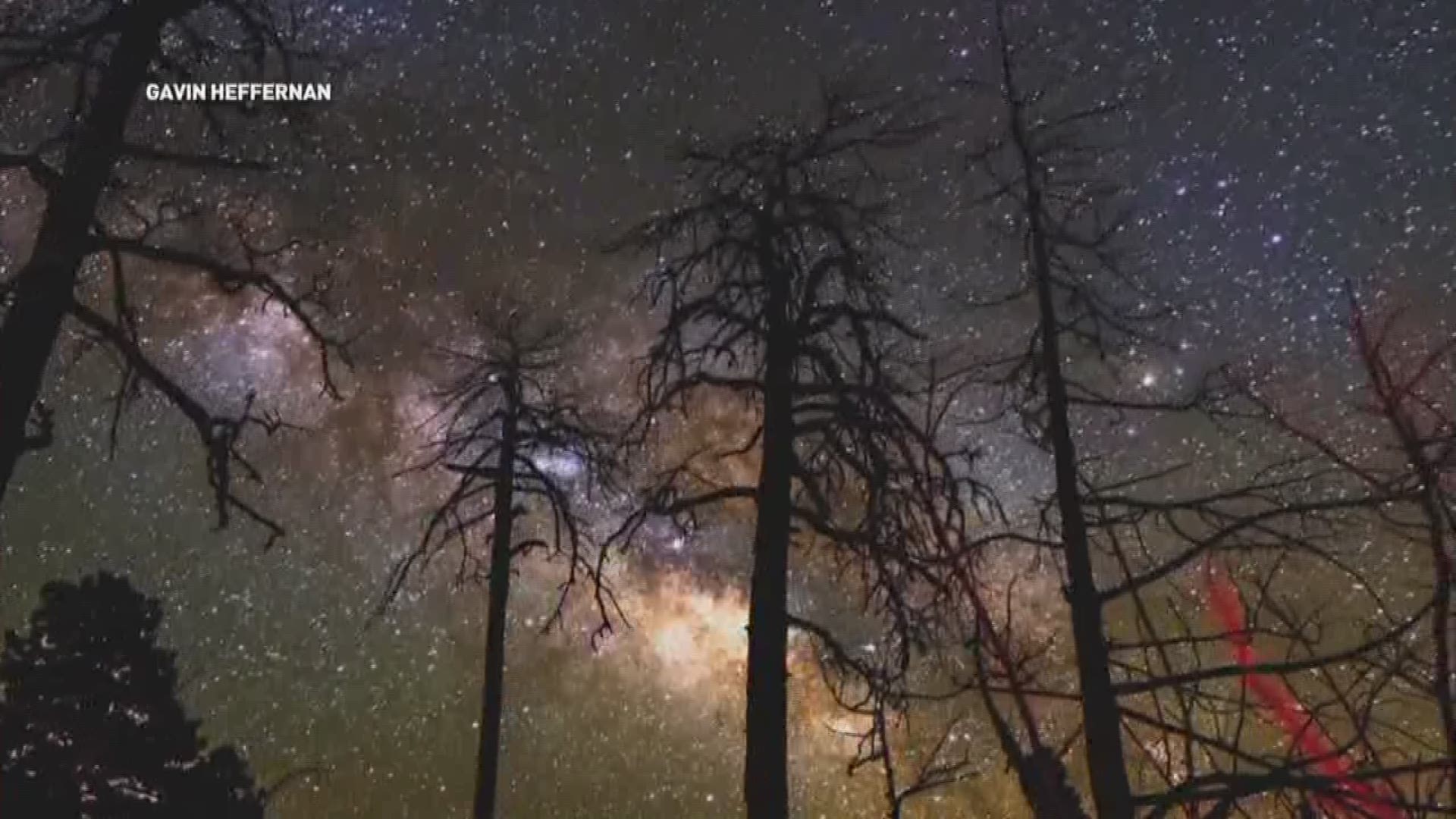They say you can get lost in the night sky. But more and more, the night sky is getting lost in the light.
The excessive use of artificial light, or light pollution, throughout the globe and right here in Phoenix has ignited a dark-sky movement.
“Modern research telescopes have detectors that are sensitive to tiny amounts of light and we study incredible faint objects from distant galaxies to little tiny asteroids that occasionally come in and impact the Earth," said Jeff Hall, astronomer and director of Lowell Observatory. "So even small amounts of artificial skyglow have a detrimental effect on the research mission of the observatories around the state."
While scientists use fancy tools to do their research, you can help them just by pulling out your phone.There’s a free app you can download called “Loss of the Night,” which helps researchers track light pollution.
Once you’ve opened the app, let it track your location. It’ll ask you a few questions including what the weather is like. Then, hold your phone out and tilt it up to the sky where the arrow is pointing. When it reaches a star, the screen will freeze. Then let the app know if you can see the star or if it’s drowned out by light around you.
“One of the neat things about the advances recently in technology is that citizen-scientists and amateur astronomers have access to equipment you can use to do very good observations,” Hall said. “It’s just an excellent way, whether you’re talking about skyglow or astronomical observations, that the broader public can participate in real science and assist professionals in coming up with very good results.”
The app was inspired by the website Globe at Night, where more than 100,000 measurements have already been recorded by people just like you.
Different times of the year mean different constellations to study. In February, for example, scientists need your help tracking Orion.
“The program provides, either as an app to your phone, or you can print these out beforehand, various pictures of how the constellation might look depending on the light pollution in your area,” said Ed Anderson, support systems analyst for the physics and astronomy department at NAU and director of the NAU Observatory.
“Scientists quantify it by actually measuring the brightness," Anderson said. "So, like a light meter for your camera for instance, just a bit fancier, and it’s either attached to the side of a telescope or we might dedicate a telescope to it and we point the telescope around the sky and see how it measures."
Everyone can do their part in the dark sky movement, whether it’s channeling your inner citizen scientist or simply turning out your lights, to keep our night sky from becoming a light landfill.

